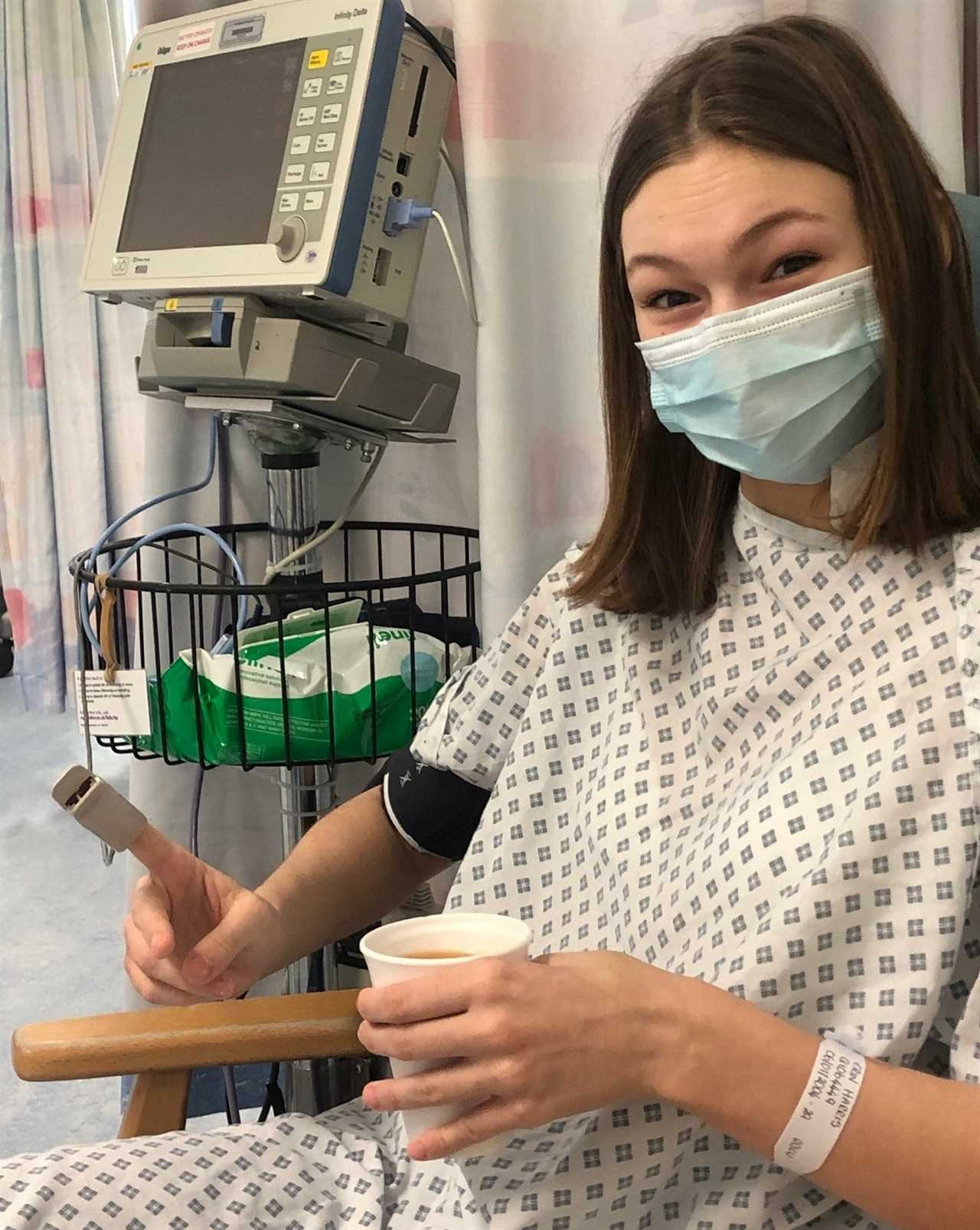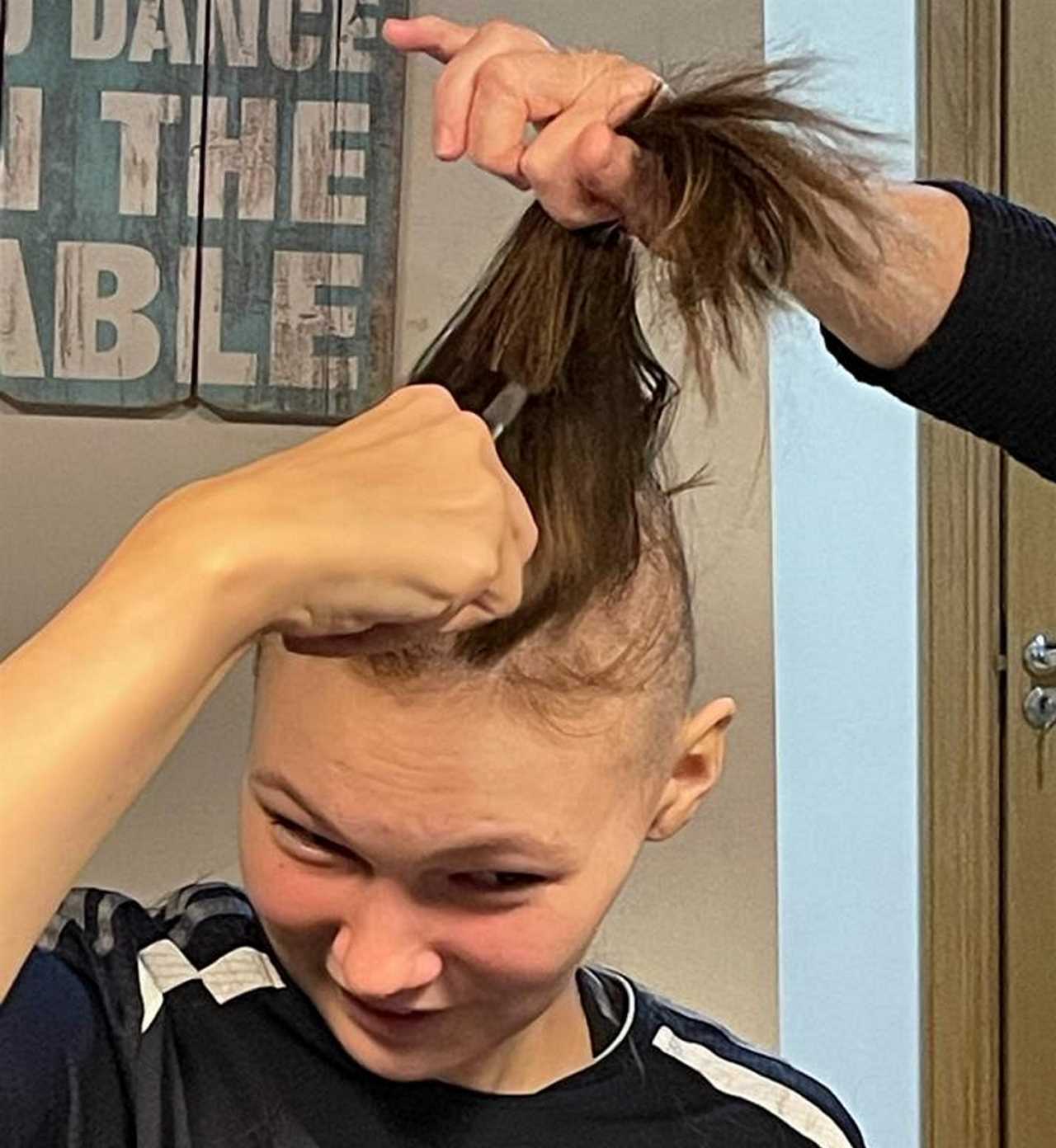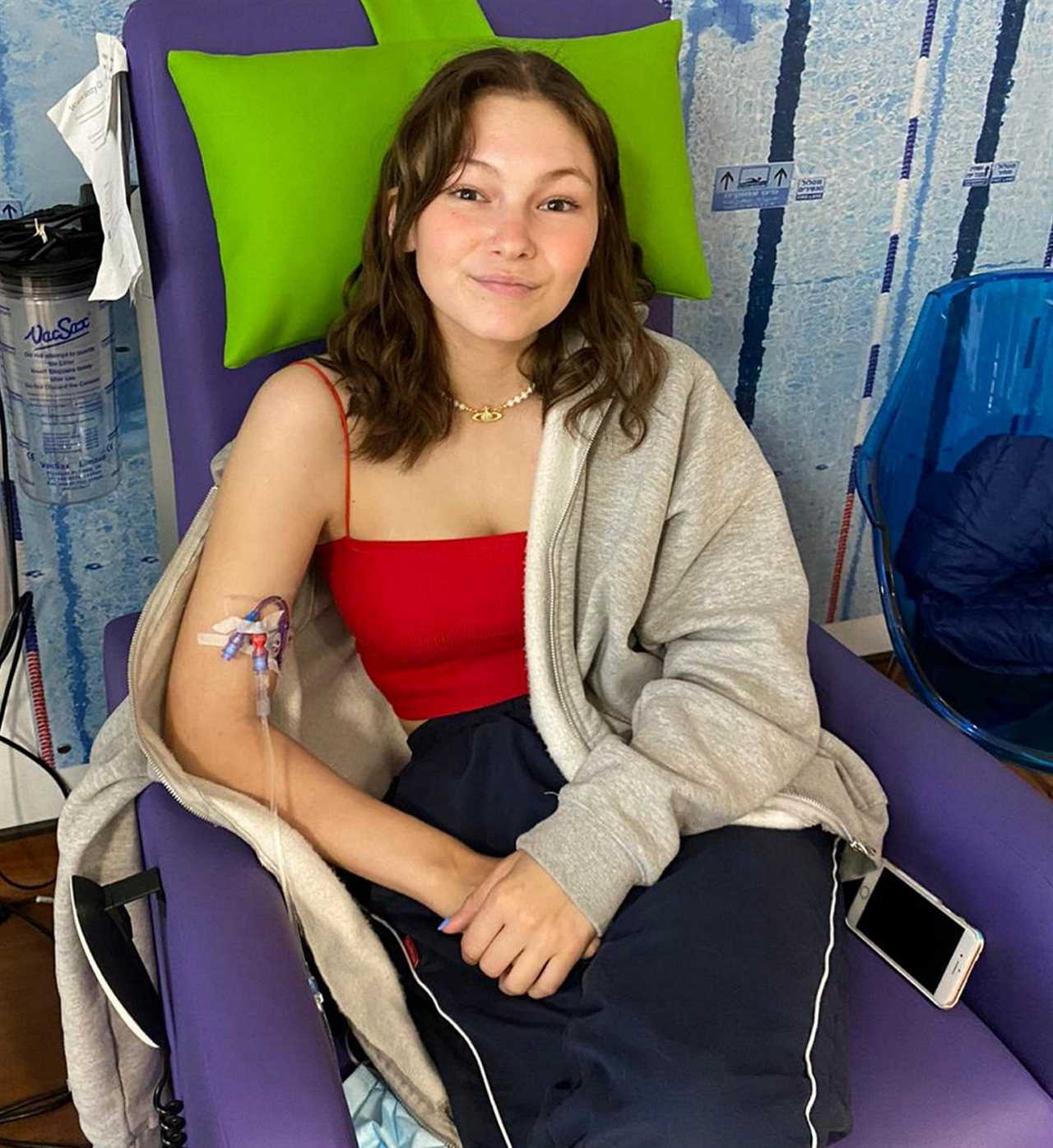A WOMAN who thought her allergies were flaring up in fact had a rare cancer that typically affects young people.
Erin Harris, now 18, felt tired and wheezy in October 2020, but she and her GP attributed it to a watermelon allergy flare-up or asthma.
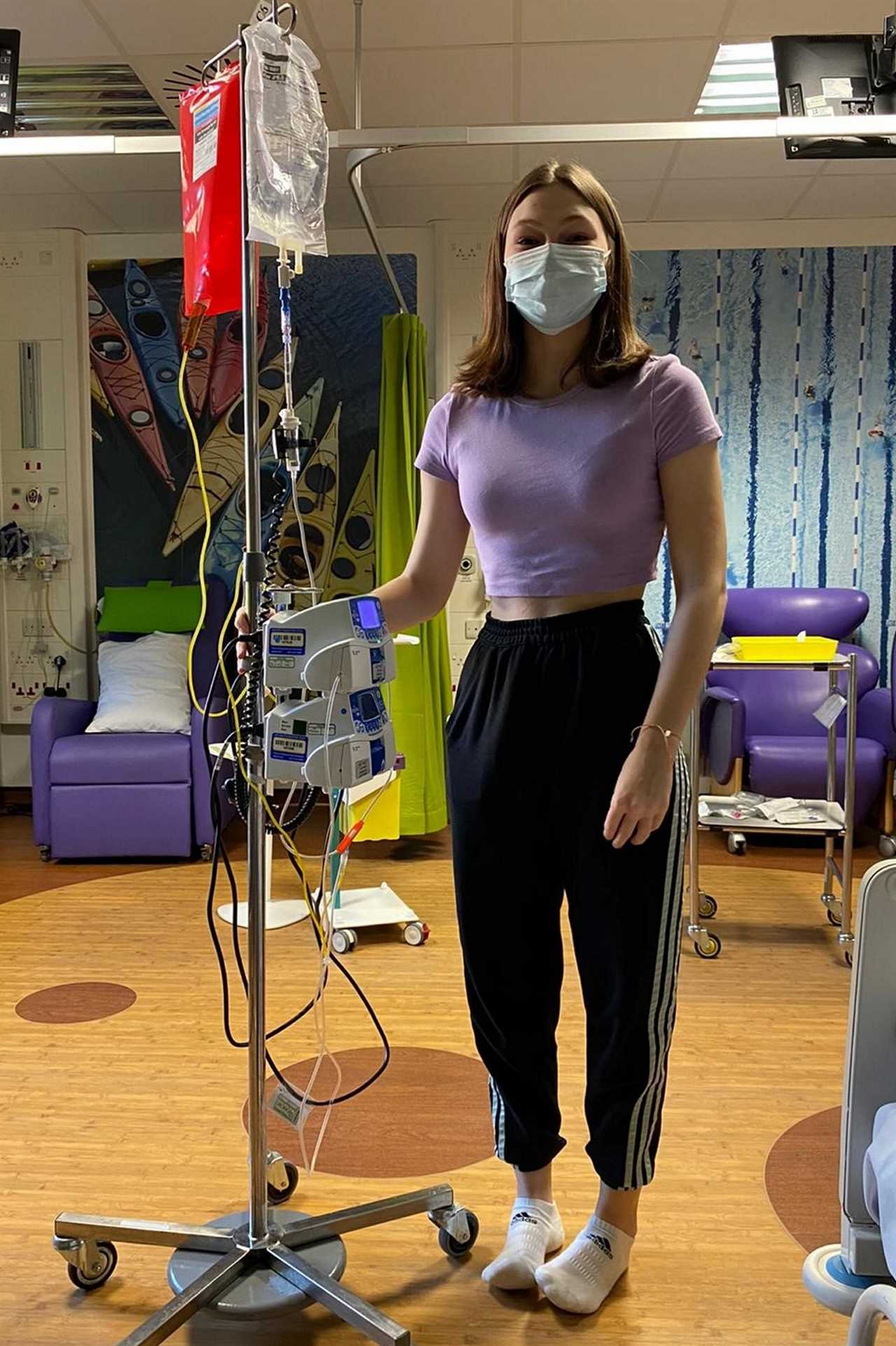
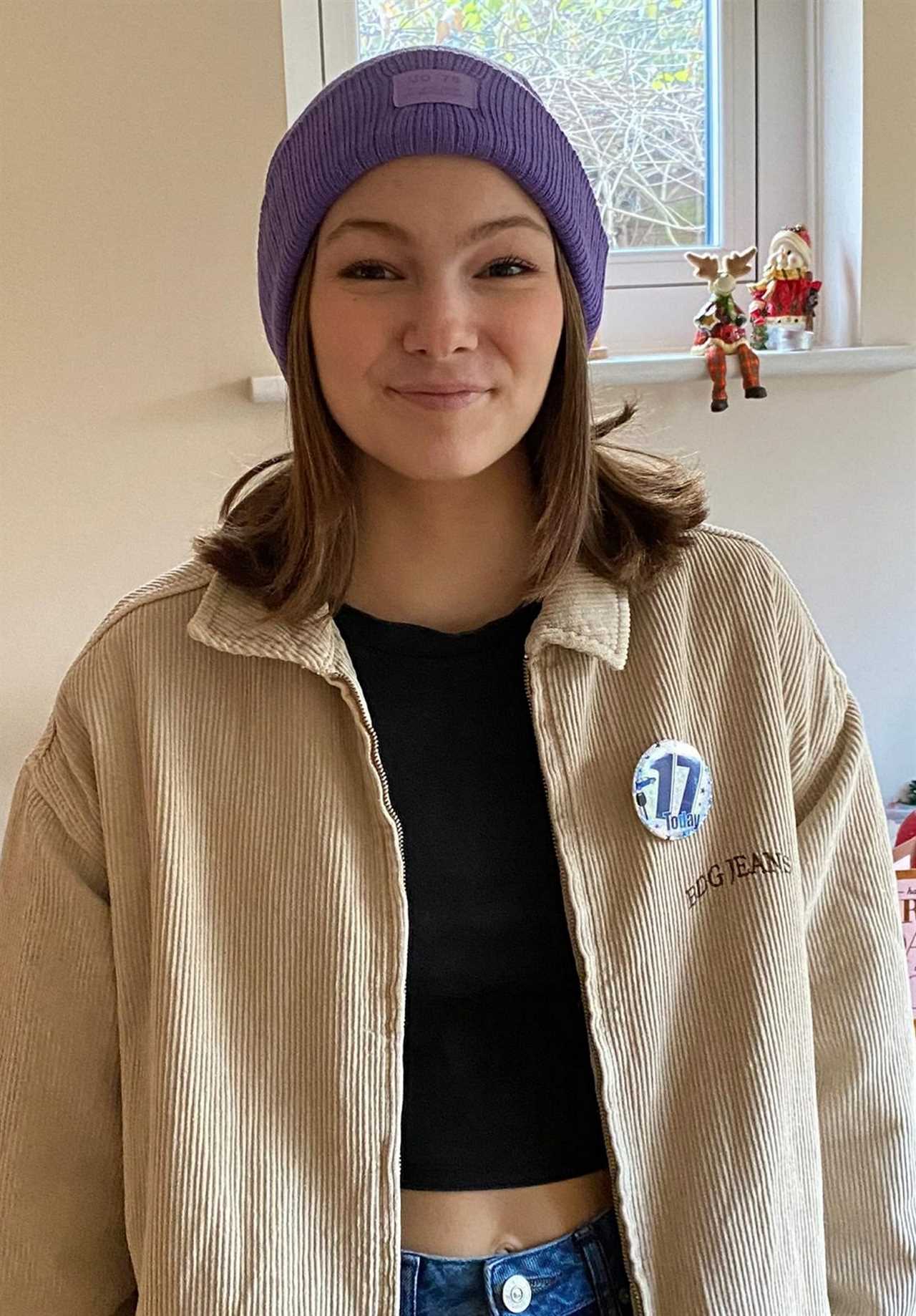
She’d had a previous incident with the tropical fruit in the summer, saying: “I had a blood test and it indicated allergies, so it all added up.”
The then 16-year-old tried to carry on as normal despite having “extreme fatigue”.
But she then developed a lump on her neck which made her believe something else was wrong.
Doctors said she had a virus, suggesting the lump was a swollen gland, and she celebrated her 17th birthday as best she could.
Erin, from Waterlooville, Hampshire, said: “After a while of taking antihistamines and my asthma inhaler for my allergies, I found a small lump on my neck which kept growing bigger.
“After finding the lump, I saw the GP four times over the course of two months before getting a referral.
“I kept going but they thought [it] was a virus.”
As the lump grew bigger over nine weeks, Erin was persistent with doctors, believing there was something more sinister going on.
She said: “Eventually, I called them up and blagged my way through it and told them it was really bad and I got referred to an ear, nose and throat specialist who ran tests and found it to be cancer.
“We know our bodies better than anyone, and we know even better when something is wrong, getting checked is the most important thing.”
Erin was diagnosed with lymphoma cancer, a blood cancer that diagnosed 19,500 times a year in the UK.
Symptoms include a lump in the neck, armpit or groin, feeling worn-out for no reason, unexplained weight loss, excessive sweating at night and constant itching for no reason.
There are around 60 different types of lymphoma, which are broadly grouped into Hodgkin and non-Hodgkin lymphomas.
Erin had Hodgkin lymphoma, the rarer type, diagnosed in around 2,100 people in the UK each year.
A lump on her chest was causing her breathing difficulties.
Hodgkin lymphoma can develop at any age, but it mostly affects people between 20 and 40 years of age and those over 75.
Erin underwent chemotherapy at Southampton General Hospital in February 2021.
Hodgkin lymphoma, although described as “aggressive” by the NHS, is also “one of the most easily treated types of cancer” – but some 312 people die of it every year.
Erin went into remission and is now in her final year of A-levels, hoping to do Psychology at the University of Southampton next year.
The student, who creates TikToks about her cancer, is urging other young people to check themselves regularly and go to their GP with concerns as part of a Teenage Cancer Trust campaign.
The trust says that seven in 10 young people (18-24) are unable to identify the five main warning signs of cancer.
These are: lumps, unexplained tiredness, mole changes, pain, and significant weight change.
Only one main sign – lumps bumps and swellings – could be identified correctly by the majority of respondents.
Louise Soanes, Chief Nurse, Teenage Cancer Trust, said awareness of symptoms is “concerningly low”.
She said: “This could be one of the reasons it takes longer for young people to be diagnosed with cancer than older adults.
“But because cancer in younger age groups is considered rare, it could also be that GPs and other healthcare professionals are less likely to suspect cancer and refer young people with symptoms on for further investigation.
“Cancer is far less likely to affect young people than older adults – but when it does it can have a devastating impact – so being able to spot potential warning signs that could lead to an earlier diagnosis really can make a difference.
“Listen to your body and if you feel that something isn’t right seek medical help. It probably isn’t cancer, but it’s always best to check, so book an appointment with your GP to discuss your concerns.
“If you don’t feel like you’re getting the answers you need keep going back, because if a patient consistently presents with concerns, healthcare professionals should listen and take these seriously.”v
